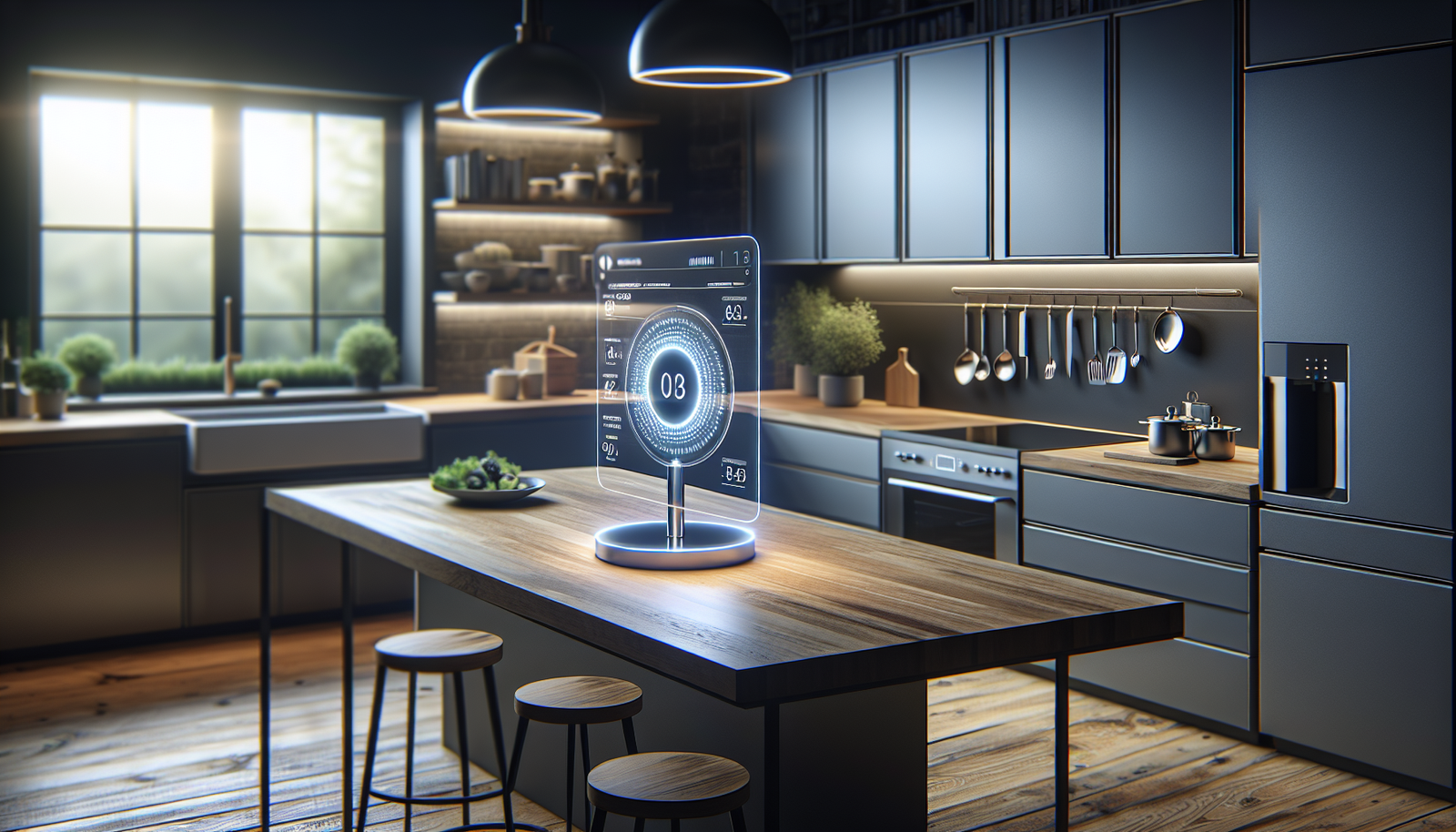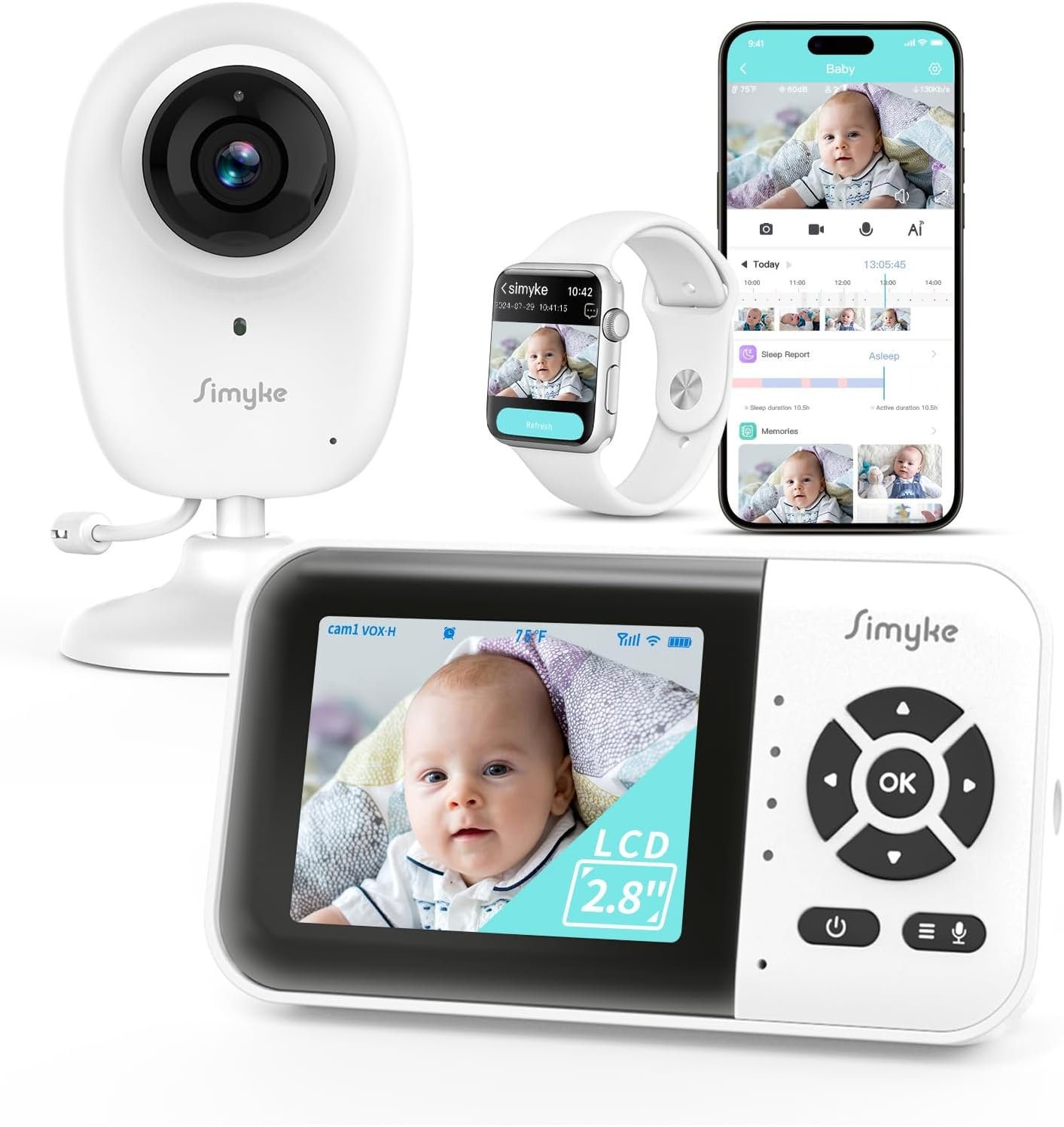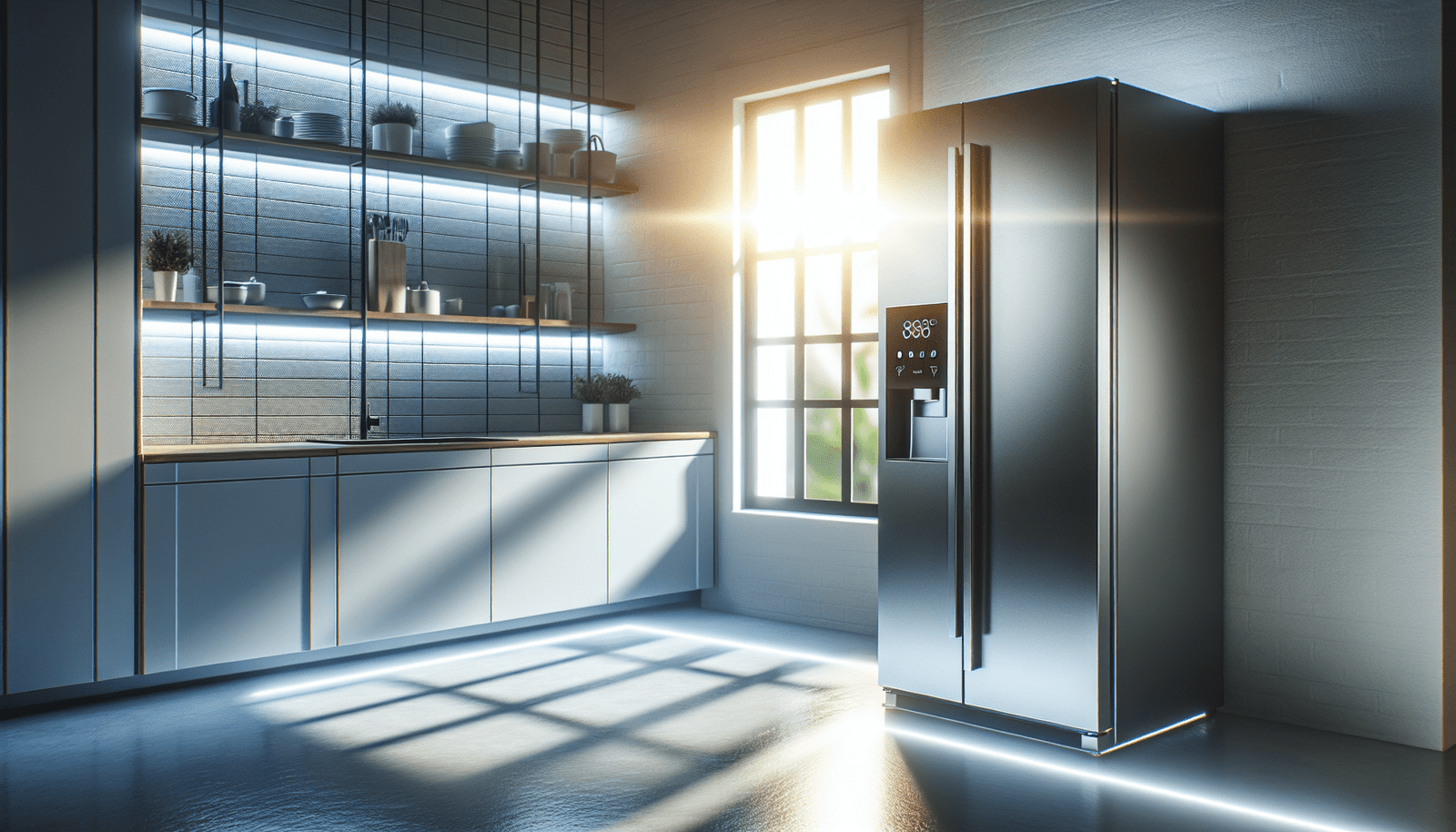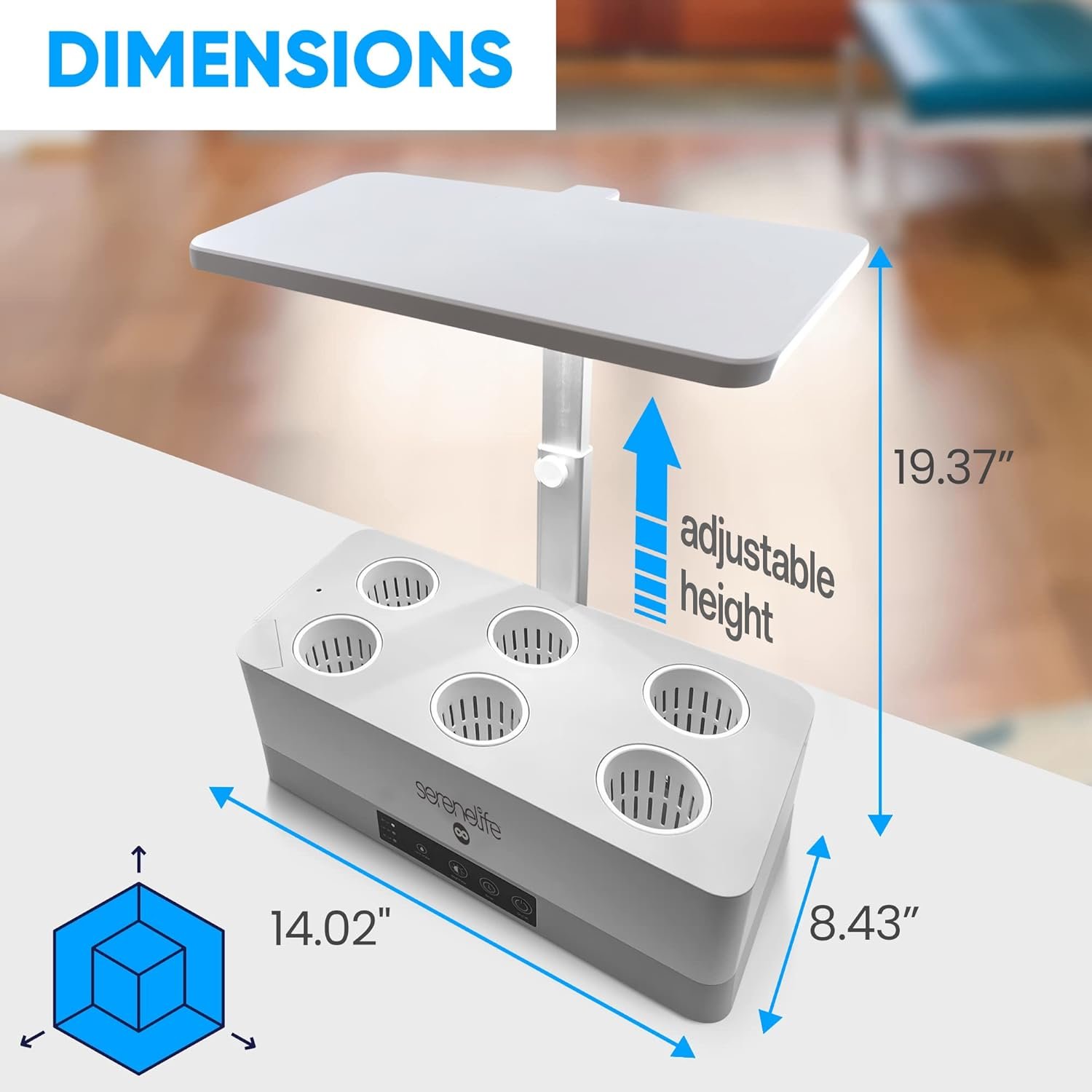Have you ever thought about the ways smart technology could transform your kitchen, making it not just more efficient but also safer? In today’s rapidly advancing tech world, smart sensors are revolutionizing kitchens by introducing enhanced security measures, efficiency, and convenience. Whether you’re a cooking enthusiast, a busy professional, or someone curious about smart kitchen innovations, this guide offers insights into how smart sensors can elevate your kitchen safety and streamline your cooking experiences.

Understanding Smart Sensors in the Kitchen
Smart sensors are sophisticated devices that can detect changes in the environment and communicate with other smart devices to initiate actions or alerts. In the context of a kitchen, these sensors offer a wide array of functionalities, from monitoring food freshness to ensuring appliances are operating safely. By integrating these sensors into your kitchen, you can significantly reduce the risks of accidents and enhance your cooking experience.
What Are Smart Sensors?
Smart sensors are advanced components that gather data from the environment and process it. They can handle various tasks, such as measuring temperature, detecting smoke, or even sensing motion. Connected via Wi-Fi or Bluetooth, they communicate with other smart devices, often using a hub or a central control system to perform tasks automatically or alert users to potential issues.
How Smart Sensors Enhance Kitchen Safety
The use of smart sensors in kitchens offers multiple safety benefits. For instance, they can detect gas leaks, smoke, or high carbon monoxide levels. These sensors provide peace of mind by alerting users in real-time, potentially preventing hazardous situations. Moreover, they can be linked to home security systems, providing a holistic monitoring solution.
Setting Up a Smart Kitchen
Creating a smart kitchen is not just about acquiring the latest gadgets; it’s about integrating technology intelligently to improve everyday tasks. Here’s how you can begin setting up your smart kitchen to prioritize safety and efficiency.
Choosing the Right Smart Devices
Selecting the right smart devices is crucial for setting up an effective smart kitchen. When you start your journey, consider your needs: Are you focused on energy efficiency? Do you need devices that assist in meal prep? With these questions in mind, explore options like smart ovens, refrigerators, and dishwashers that come with built-in sensors, thus adding layers of automation and safety.
Integrating Smart Sensors in Existing Appliances
If replacing all your kitchen appliances seems daunting, you can still enjoy smart technology benefits by integrating smart sensors into your existing setup. Look for sensors compatible with older appliances; many can be retrofitted to enhance their functionality. For instance, use a smart thermometer with your oven or stovetop to avoid overheating and ensure food safety.
Connecting Devices for Seamless Functionality
A smart kitchen is only as good as the network of connected devices. Ensuring smooth communication between your appliances is key. Use a central controller or a hub, such as a smart speaker or a specialized app, to manage and monitor your smart sensors and appliances. This connectedness enhances functionality and safety, enabling devices to work in harmony.
Cooking with Smart Devices
Smart devices in the kitchen are designed not only for safety but also to make cooking and meal prep more precise and enjoyable. Discover how to cook smarter with these innovative tools.
Precision Cooking Tools
One of the primary advantages of smart cooking devices is precision. Smart ovens with integrated sensors ensure your food is cooked to perfection by monitoring temperatures and adjusting cooking times automatically. Smart scales and thermometers provide exact measurements and readings, helping you perfect recipes with ease.
Enhancing Meal Prep with Smart Tools
Meal preparation can be time-consuming, but smart gadgets streamline the process. Smart blenders, food processors, and sous vide machines with pre-set options allow you to prepare meals faster and more effectively. For instance, a smart food processor can weigh and mix ingredients with precision, reducing prep time and the potential for errors.
Monitoring Food Safety and Freshness
Keeping your food safe and fresh is paramount. Smart refrigerators are equipped with sensors that monitor temperature and humidity, alerting you if conditions are not optimal. They can also notify you if food is nearing its expiration date, helping to prevent spoilage and reduce waste.
Energy Efficiency with Smart Technology
An often overlooked benefit of smart kitchen appliances is their ability to enhance energy efficiency. Learn how to reduce your kitchen’s energy consumption and your carbon footprint using smart technology.
Smart Energy Monitoring
Smart plugs and energy monitors help track the energy consumption of each device in your kitchen. By analyzing this data, you can identify which appliances are consuming the most energy and make informed decisions on optimization or replacement with more energy-efficient models.
Automated and Scheduled Operations
Many smart appliances offer scheduling features that help conserve energy. For example, you can program your dishwasher or washing machine to operate during off-peak hours, reducing electricity costs. Additionally, smart lighting systems can automatically adjust illumination based on the time of day, ensuring more efficient energy use.
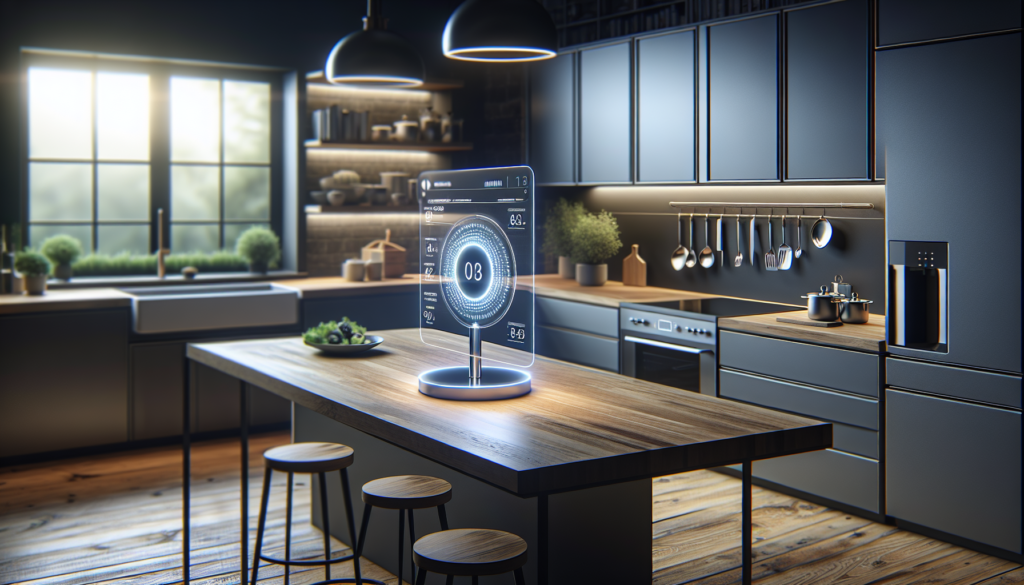
Maintenance and Troubleshooting of Smart Appliances
Maintaining your smart kitchen’s functionality requires a solid understanding of how to care for and troubleshoot your devices. Here, we delve into keeping everything running smoothly.
Regular Maintenance Tips for Smart Appliances
To keep your kitchen running optimally, regular maintenance of smart appliances is essential. Clean sensors regularly to prevent errors and ensure accuracy. Update firmware and software to benefit from the latest features and security patches. Additionally, perform routine checks on connections and integrations to ensure everything is working as intended.
Troubleshooting Common Issues
Despite the advanced nature of smart devices, issues can still arise. Frequently encountered problems include connectivity troubles, sensor failures, and integration hitches. Begin troubleshooting by checking connections, ensuring software updates are in place, and consulting device manuals. If issues persist, reaching out to customer support or online communities can provide solutions.
Cybersecurity in Smart Kitchens
As with any connected device, cybersecurity is crucial. Protecting your smart kitchen from virtual threats involves regular password updates, using encryption for communications, and familiarizing yourself with the privacy settings on each device. Staying informed about potential vulnerabilities is an integral part of safeguarding your smart kitchen.
The Future of Smart Kitchens
The smart kitchen landscape is continuously evolving. As technology advances, new opportunities for safety, efficiency, and convenience will arise. Here’s a glimpse into the potential future innovations in this field.
AI-Driven Cooking Assistants and Automation
Imagine a kitchen where AI assistants guide your cooking process, offering recipe suggestions based on your preferences and dietary needs. With AI, automation in the kitchen is set to become even more intuitive, helping streamline meal prep and cooking tasks.
Advanced Connectivity and 5G Impact
The advent of 5G technology will enhance the connectivity of smart kitchen devices, allowing for faster and more reliable communication. This will enable even more seamless integration of devices, improving the overall smart kitchen experience.
Sustainability and Renewable Integration
Future smart kitchens are likely to focus more on sustainability. Integration with renewable energy sources, like solar panels, paired with self-regulating smart appliances, can result in more environmentally friendly kitchens, helping reduce both energy use and carbon footprints.
The Role of Augmented Reality in Cooking
As augmented reality (AR) technology progresses, it could play a significant role in the kitchen. Imagine AR displays guiding you through complex recipes or training you on cooking techniques in real-time. This technology has the potential to transform cooking into a more interactive and engaging activity.
Conclusion
Embracing smart sensors and technology in your kitchen has the power to not only enhance safety but also revolutionize the way you cook and interact with your cooking space. From ensuring top-notch safety with gas and smoke sensors to improving efficiency and precision in cooking, smart kitchen technology offers many benefits. Staying informed and updated about these innovations will ensure that your kitchen remains a safe, efficient, and enjoyable space for all your culinary adventures. Wouldn’t it be remarkable to walk into a kitchen that anticipates your needs and ensures everything runs smoothly and safely?
Disclosure: As an Amazon Associate, I earn from qualifying purchases.
